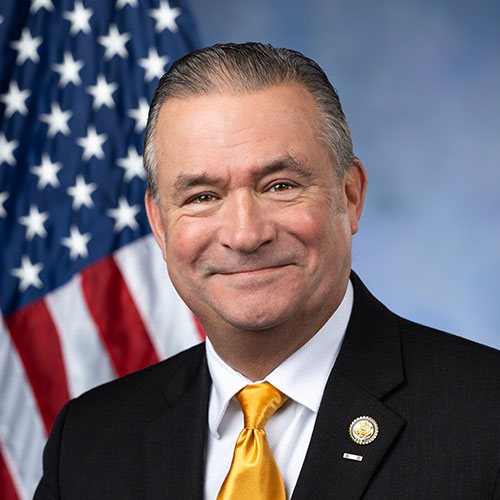Press Releases
AHCA: Myth vs. Fact
Washington, DC,
May 11, 2017
Tags:
Health Care
There are quite a few misconceptions about the bill to repeal & replace the Affordable Care Act. The following are answers to some common concerns: I have a pre-existing condition. How does this bill affect me?Under the AHCA, insurance companies cannot deny you coverage based on pre-existing conditions. And your health status cannot affect your premiums, unless your state asks for and receives a waiver—a condition of which is the state having other protections in place for those with pre-existing conditions. Even if your state does obtain a waiver, so long as you’ve been continuously covered, you still cannot be charged more. And the bill provides added resources to help people in waiver states who have not been continuously covered to gain coverage. Bottom line, there are many levels of protection for those with pre-existing conditions in the legislation. I heard about the MacArthur amendment allowing states to waive protections for pre-existing conditions. If this happens, will I lose all my benefits?No. This amendment preserves protections for people with pre-existing conditions while giving states greater flexibility to lower premiums and stabilize the insurance market. To obtain a waiver, states will have to establish programs to serve people with pre-existing conditions. And no matter what, insurance companies cannot deny you coverage based on pre-existing conditions. And what about the Upton amendment?The Upton amendment provides an additional $8 billion for states seeking a waiver. These resources will allow people with pre-existing conditions who haven’t maintained continuous coverage to acquire affordable care. Are Members of Congress exempt from this provision?No. Members will not be exempt. This was initially included for technical reasons to comply with Senate rules, but the House has voted to remove this from the AHCA. Why are you cutting women’s health services?We’re not. In fact, we’re expanding women’s access to health services by redirecting Planned Parenthood dollars to community health centers, which vastly outnumber Planned Parenthood clinics. Why are you voting to kick 24 million people off health care?We’re not. AHCA will ensure everyone has access to affordable, quality healthcare, but we’re just not forcing people to buy insurance. Moreover, that estimate failed to take into account other planned legislative and administrative actions, which will help bring down costs and expand coverage. ******** REFUNDABLE TAX CREDITSAdvanceable, refundable tax credits are an important component of the AHCA, designed to give people who don't receive health care from their employer, Medicaid, or other federal health plans—such as the VA—the same tax benefits as those who do so. This allows individuals to purchase the kind of coverage that is right for their family. It equalizes the tax treatment of health care regardless of where you buy it and helps create a vibrant individual market. These credits are longstanding conservative policy goals. REFORMS MEDICAIDOne in three physicians are unwilling to accept new Medicaid patients. Unfortunately, Obamacare simply added more people to a broken system. The AHCA is a historic shift of power back to the states so that we can make it work for those who need it. It reforms Medicaid so that it is flexible and responsive to those it was created to serve. It prohibits states from expanding into the current broken Medicaid system. It maximizes state flexibility. It gives states the choice between a per capita allotment or a traditional block grant and provides the option for states to implement work requirements for Medicaid recipients. It ensures the rug isn’t pulled from underneath any able-bodied patient as he or she transitions to other coverage, like a plan purchased with refundable tax credits. EXPANDS HEALTH SAVINGS ACCOUNTSHealth Savings Accounts (HSAs) are tax-free health care savings accounts for Americans with high-deductible health plans. HSAs are critical for helping Americans save and spend their health care dollars more wisely. The AHCA would nearly double the amount Americans can contribute to their accounts, which will give greater choice and flexibility in purchasing coverage. Conservatives agree: HSAs must be a focal point of health care reform. PROTECTS PRE-EXISTING CONDITIONSFirst and foremost, the bill contains numerous protections for people with pre-existing conditions. The law is clear: Under no circumstance can people be denied coverage because of a pre-existing condition. The latest draft contains two more layers of security for these individuals: The MacArthur amendment gives flexibility to states to tackle premium prices. However, there is a very strict process for obtaining that waiver. It will only be given to states with high-risk pools and other protections in place. For states seeking a waiver, the Upton amendment provides an additional $8 billion to allow people with pre-existing conditions who haven’t maintained continuous coverage acquire affordable care. RESTORES PRO-LIFE PRINCIPLESThe AHCA defunds Planned Parenthood, the largest abortion provider in the country, for one year by blocking more than $500 million of federal dollars. It redirects the money to community health centers, which far outnumber Planned Parenthood clinics. WHAT'S NEXT?Phase 1 = Pass AHCA
|
